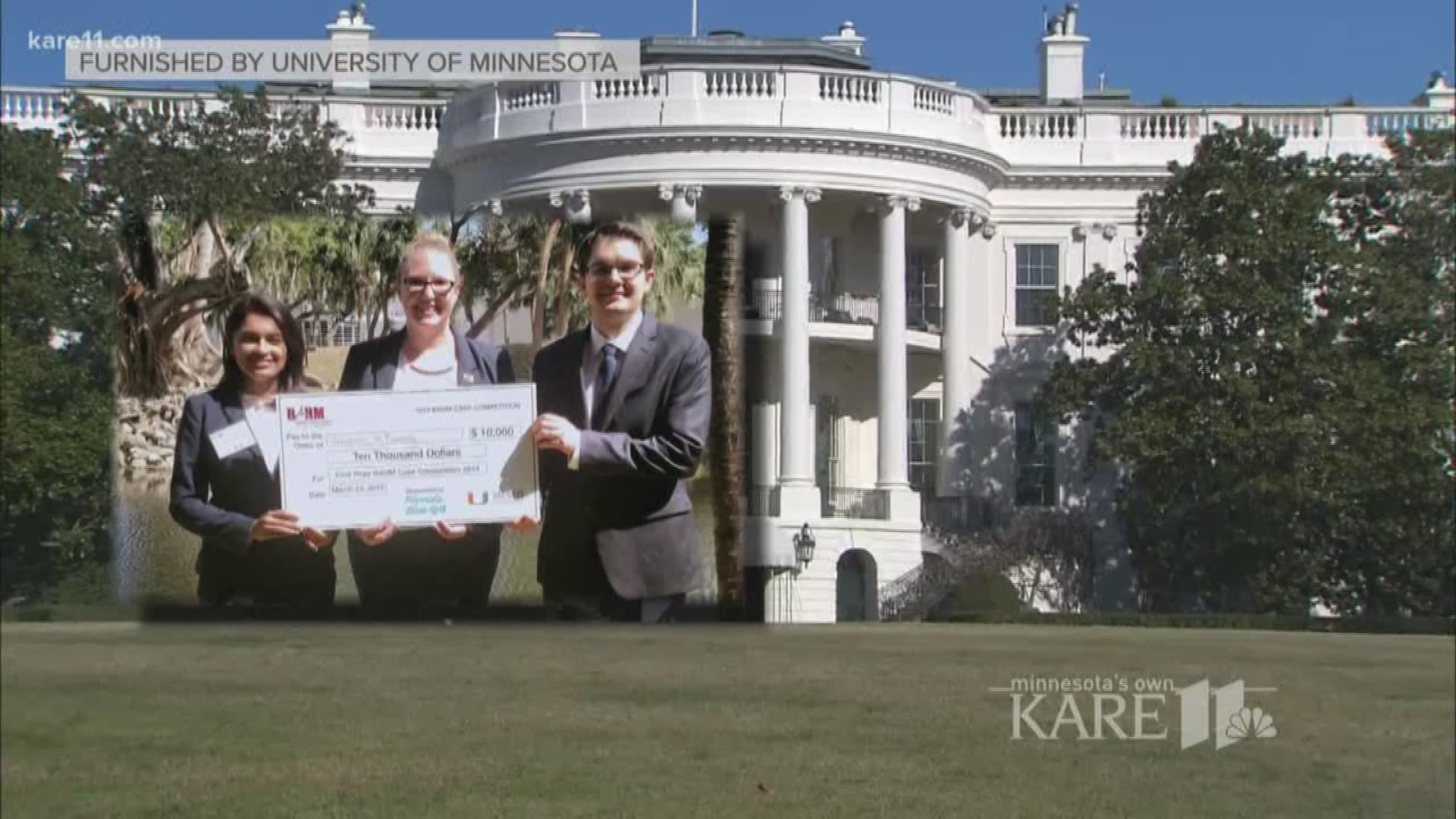MINNEAPOLIS - Some University of Minnesota students are garnering national recognition, and local interest, for their plan to address the opioid crisis.
Prachi Bawaskar, Elisha Friesema and Stephen Palmquist all have experience in the health care field and are also MBA students at the University of Minnesota Carlson School of Business. They recently won the national Business School Alliance for Health Management (BAHM) Case Competition for a project they call "Community Empowerment to Address the Substance-use Epidemic" (CEASE).
"We wanted to focus on the demand, individuals with substance use, how do we reach out to them," Palmquist said. "I think winning the competition really says to us that we hit something that was really missing."
"A lot of health care right now is very reactive, they wait for people to come to them," Friesema said. "With CEASE we're actually sending people out into the community and bringing them in."
Friesema says their plan is modeled after Cure Violence, a successful program that has helped combat violence in several U.S. cities. It addresses the opioid epidemic like a contagious disease. Their work begins by identifying areas of Minnesota hardest hit by opioids: Hennepin and Ramsey Counties. That work then led them to specific zip codes where exposure is greatest.
"Really isolate it and treat it before it spreads out of that community," Palmquist said.
"It would be things like having community workers working with different emergency room departments and bringing patients who had just potentially overdosed and getting them the resources that they need," Friesema said.
"Minnesota is great in that we have a lot of existing resources," Bawaskar said. "It's just how do we bring them together?"
It's a question they'll begin to answer on Wednesday. The students will present their plan to State Health Commissioner, Jan Malcolm, and Minneapolis Mayor, Jacob Frey. They hope to get the conversation about CEASE started.
"And hopefully even implement it in the community," Bawaskar said.
As part of the national contest, the students figured out how to fund their plan using three different funding sources. They also described the network of nurses, social workers and community staff would help execute it. They'll explain it all in detail to local and state leaders on Tuesday, and it will go to the Surgeon General in the coming weeks.

